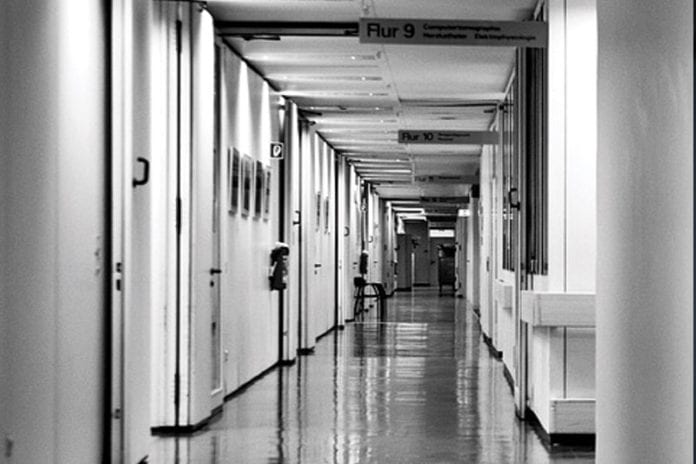Studies have shown that patients who undergo surgeries on weekends tend to experience longer hospital stays and higher mortality rates and readmissions.
For the first time, a study has identified five resources that can help hospitals overcome this "weekend effect";
1 Increased nurse-to bed ratio
2 Full adoption of electronic medical records
3 Inpatient physical rehabilitation
4 A home-health program
5 A pain management program
The study by researchers at Loyola University Medical Center and Loyola University Chicago is published in the October, 2015 issue of the journal Annals of Surgery.
The findings suggest that improved staffing, inpatient and aftercare resources "can play an important role in ensuring patients are not disadvantaged by being admitted to the hospital on the weekend," senior author Paul Kuo, MD, MS, MBA, first author Anai Kothari, MD, and colleagues reported.
Several reasons have been proposed to explain the weekend effect, including reduced staffing and resources and fewer experienced doctors and nurses working on weekends.
Loyola researchers hypothesized that boosting hospital resources before, during and after surgery could overcome the weekend effect. They tested their hypothesis in patients undergoing three types of urgent surgeries that could not be delayed until weekdays: appendectomies, hernia repairs and gall bladder removals.
The researchers examined records of 126,666 patients at 166 Florida hospitals participating in a data base program sponsored by the U.S. Agency for Healthcare Research and Quality. Florida was picked because of its large, diverse population. To determine characteristics of individual hospitals, the patient data were linked to the American Hospital Association Annual Survey database.
Researchers examined a five-year period (2007-2011). The weekend effect was defined as having longer length of stays on the weekend than during the week. During these five years, 21 hospitals developed a weekend effect and 41 hospitals experienced a weekend effect for all five years. Twenty-one hospitals developed a weekend effect and 87 hospitals oscillated between having a weekend effect one year and no weekend effect the next.
Researchers were most interested in the 17 hospitals that were able to overcome the weekend effect. They examined 21 hospital resources, and after controlling for patient characteristics, identified five resources that helped to overcome the weekend effect:
> Hospitals with increased nurse-to-bed ratios were 1.44 times more likely to overcome the weekend effect. Hospitals that overcame the weekend effect had a median nurse-to-bed ratio of 1.3, compared with a nurse-to-bed ratio of 1.1 among hospitals with a persistent weekend effect.
> Hospitals with home health programs were 2.37 times more likely to overcome the weekend effect. In such programs, skilled caregivers check on patients after they are discharged, providing wound care, administering medications, etc.
> Hospitals that fully adopted electronic medical records were 4.74 times more likely to overcome the weekend effect. Only 12.2 percent of hospitals that had persistent weekend effect had fully adapted electronic medical records, compared with 40 percent of hospitals that overcame the weekend effect.
> Hospitals with inpatient physical rehabilitation programs were 1.03 times more likely to overcome the weekend effect. Such programs identify patients who require additional physical conditioning prior to discharge or need extra resources at home.
> Hospitals with pain management programs were 1.48 times more likely to overcome the weekend effect. Seventy percent of hospitals that overcame the weekend effect had pain management programs, compared with 49.3 percent of hospitals that had persistent weekend effects.
Researchers plan to conduct a follow-up study of hospitals in California, which also has a large, diverse population.
The study was conducted by Loyola's predictive analytics program, which mines large data sets to predict health outcomes. In addition to the weekend effect study, researchers are studying, for example, how many rectal cancer operations a hospital needs to perform for the best results, and whether having a trauma department confers a beneficial "halo effect" on patient outcomes across the board.
Large new databases, electronic medical records and more powerful computers are enabling researchers to conduct such studies. "We're now able to ask and answer a broad range of questions that could significantly help improve patient care and reduce costs," Dr. Kuo said. Dr. Kuo heads Loyola's analytics group, One to Map Analytics.



When I worked Home Health, God help us if we had a Friday discharge to admit – and an in and out surgery patient at that? Try, just try to find a doctor willing to write orders for this patient. The patient’s private doctor? Forget about it. Generally, he /she doesn’t know what’s been done and what medications the patient was discharged with – generally not the ones he / she originally ordered. Hospitalists figuratively wash their hands of this patient once they are discharged. It can take hours to get a simple order for pain meds that someone overlooked upon discharge.